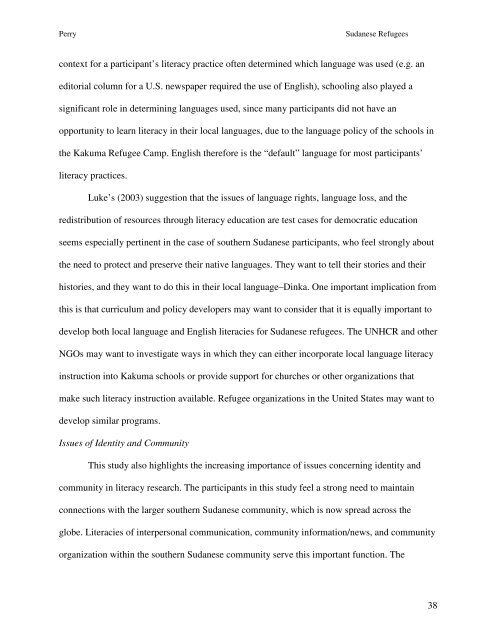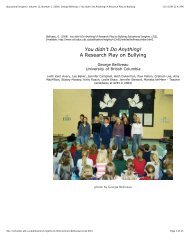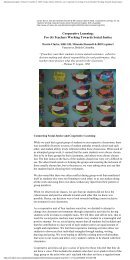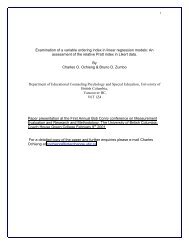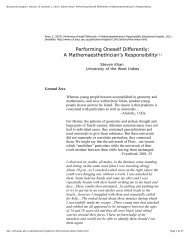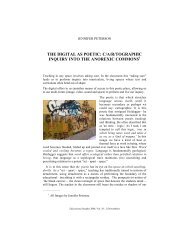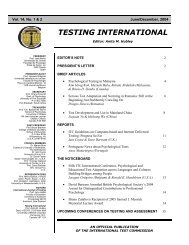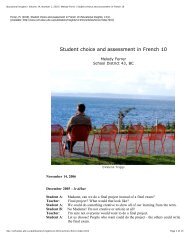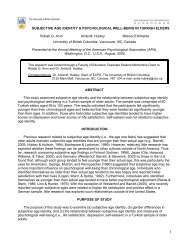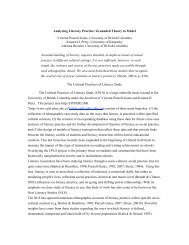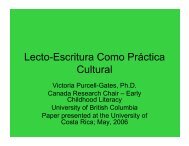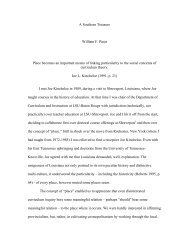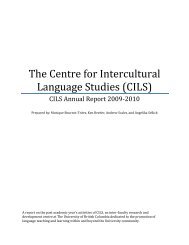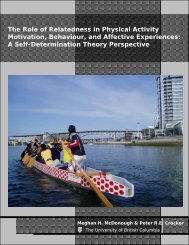Sharing Stories, Linking Lives: Literacy Practices Among ... - CPLS
Sharing Stories, Linking Lives: Literacy Practices Among ... - CPLS
Sharing Stories, Linking Lives: Literacy Practices Among ... - CPLS
You also want an ePaper? Increase the reach of your titles
YUMPU automatically turns print PDFs into web optimized ePapers that Google loves.
Perry Sudanese Refugees<br />
context for a participant’s literacy practice often determined which language was used (e.g. an<br />
editorial column for a U.S. newspaper required the use of English), schooling also played a<br />
significant role in determining languages used, since many participants did not have an<br />
opportunity to learn literacy in their local languages, due to the language policy of the schools in<br />
the Kakuma Refugee Camp. English therefore is the “default” language for most participants’<br />
literacy practices.<br />
Luke’s (2003) suggestion that the issues of language rights, language loss, and the<br />
redistribution of resources through literacy education are test cases for democratic education<br />
seems especially pertinent in the case of southern Sudanese participants, who feel strongly about<br />
the need to protect and preserve their native languages. They want to tell their stories and their<br />
histories, and they want to do this in their local language–Dinka. One important implication from<br />
this is that curriculum and policy developers may want to consider that it is equally important to<br />
develop both local language and English literacies for Sudanese refugees. The UNHCR and other<br />
NGOs may want to investigate ways in which they can either incorporate local language literacy<br />
instruction into Kakuma schools or provide support for churches or other organizations that<br />
make such literacy instruction available. Refugee organizations in the United States may want to<br />
develop similar programs.<br />
Issues of Identity and Community<br />
This study also highlights the increasing importance of issues concerning identity and<br />
community in literacy research. The participants in this study feel a strong need to maintain<br />
connections with the larger southern Sudanese community, which is now spread across the<br />
globe. Literacies of interpersonal communication, community information/news, and community<br />
organization within the southern Sudanese community serve this important function. The<br />
38


